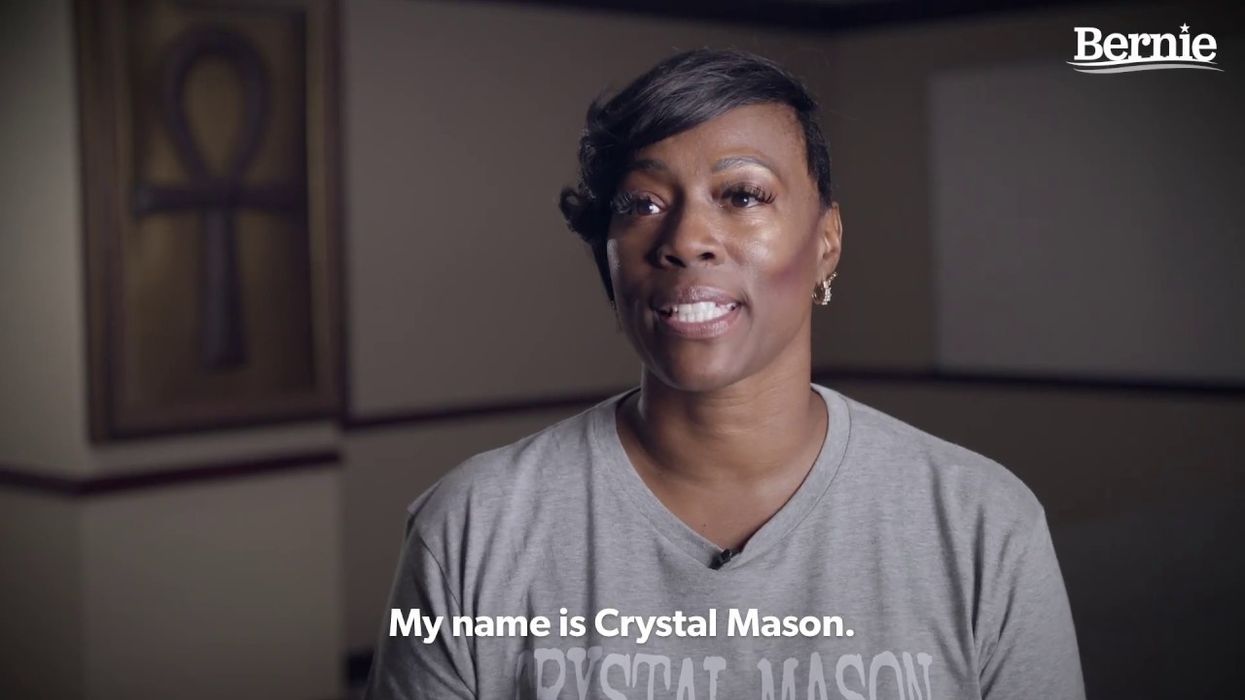Three Texas judges have rejected the appeal of Crystal Mason, whose singular illegal ballot in 2016 has become a flashpoint in the debate between those worried about widespread vote fraud and those worried about widespread voter suppression.
Mason says she will ask the full appeals court to reconsider her conviction and five-year-sentence, assuring the argument will continue over what's trickery at the ballot box versus what's excessive enthusiasm about exercising the franchise — and what the punishment should be for either one.
When Mason, who turns 45 on Saturday, went to her polling place south of Fort Worth four Novembers ago, she was on probation after finishing a federal prison term for tax fraud but was unaware state law barred her from voting. On the advice of a poll worker, she cast a provisional ballot, which was never counted. But she was eventually convicted of illegal voting and sent back to prison.
"The fact that she did not know she was legally ineligible to vote was irrelevant to her prosecution," Justice Wade Birdwell wrote for the three-judge panel last week. "The state needed only to prove that she voted while knowing of the existence of the condition that made her ineligible."
"This ruling is a severe misinterpretation of the law," said Mason's attorney, Alison Grinter. "It undercuts efforts to encourage voter turnout through the Help America Vote Act and punishes ordinary voters for attempting to fulfill their civic duty in a way that is at complete odds with our democratic principles."
Central to her appeal is the argument that a vote should never be considered illegal if it's not counted and that the provisional ballot system worked as designed — weeding out people whose eligibility is questioned but giving them a shot at voting just in case. In Tarrant County, where Mason voted, more than 12,000 people have used a provisional ballot since 2014 and seven out of eight have been rejected. But it appears Mason is the only one of them who has been charged with illegal voting.
She has become a voting rights advocate since her release last summer, turning her welcome home party into a neighborhood registration drive.
"A punishment of five years in jail for doing what I thought was my civic duty, and just as I was getting my family's life together, is not simply unfair," she told the Fort Worth Star-Telegram. "It's a tragedy."




















